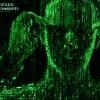To those of you who know next to nothing about Piracetam, read the Wikipedia page, here.
In short, Piracetam is a cyclic derivative of the neurotransmitter GABA, and has gained its wide recognition through its purported nootropic effects, notably improving memory, attention and hypothetically creativity by elevating cross-hemispheric signal transduction.
As to the myth itself, you see it over and over again, in various threads, starting with: “So, as per recommendation of a large amount of people, I have added choline to my Piracetam regime, and hopefully that’ll take care of my acetylcholine depletion induced headache and brain-fog.” which to be honest, doesn’t make any sense at all.
One can even postulate that most – or all – of people’s regimes effects stem from their choline administration, that has some – at least more – evidence in terms of efficacy for memory improvement in vivo.
I hope that, Ex Dubio, one of the great minds at a forum (M&M) who wrote, as to reason why Piracetam doesn’t exert its effects through cholinergic neurotransmission, will make more people aware of the myth, and not pass it around as some sort of "fact" that choline supplementation is a necessary adjunct to Piracetam treatment, and that we don't know -- at all -- what the exact mechanism of action of Piracetam is.
“You know, I've heard the connection between piracetam and acetylcholine discussed dozens, if not hundreds, of times on this forum and others. And you know how many results come up for "piracetam acetylcholine" on PubMed? 36, 5 of which are in the past decade. I sincerely doubt piracetam has direct cholinergic activity. And let me explain why.
(PMID: 9621180) First, it seems clear that piracetam exerts at least part of its action through antioxidant/neuroimmune modulation. In this study, piracetam (among other nootropics) was found to have a protective effect on brain mitochondria during craniocerebral injury.
(PMID: 1794001) Then we have the issue that a review article from around the time of active research in piracetam (early '90s) still notes that we have essentially no idea how piracetam works, though "it is thought to facilitate central nervous system efficiency of cholinergic neurotransmission". Well gee, that's definitive.
(PMID: 10869513) Then we have the fact that although, like nefiracetam, piracetam facilitates hippocampal neurotransmission (in vitro), unlike nefiracetam, piraceteam's facilitation of neurotransmission is not blocked by a nicotinic acetylcholine receptor antagonist.
(PMID: 10850735) On a related note, it seems that nefiracetam (in vitro) potentiates nicotinic ACh receptor function, but piracetam does not.
(PMID: 1559636) Then we have the issue that piracetam is different in yet more ways from the other 'racetams (whose differences are maddeningly difficult to keep straight). Oxiracetam, but not piracetam (or aniracetam) enhanced choline-acetylctransferase activity in the hippocampus (yet again, in vitro).
(PMID: 8276434) One of the few studies supporting piracetam's pro-acetylcholine effects, researchers found that piracetam prevents electroshock-induced acetylcholine decrease. The authors speculate that this implies that piracetam facilitates cholinergic neurotransmission, but an attenuation of electroshock-induced ACh decrease could simply be a manifestation of an anti-inflammatory effect or something even more subtle.
(PMID: 2904660) Piracetam was applied to neurons in the hippocampus of the rat. Depending on the area studied, it either depressed or facilitated spontaneous firing rate. "It's effect were either additive or counteracting the actions of glutamate, [GABA], and ACh, when administered together on the same neuron, this supporting the assumption that its action is directed toward specific membrane elements, presumably synaptic sites." Well, shit, that's about as nebulous a result as I can conceive of.
(PMID: 2829047) This is probably the best evidence of ACh action of piracetam I've seen, and yet its in the PNS of rats. More precisely, piracetam had no effect on muscle contraction by itself, but it facilitated muscle contraction induced by edrophonium, an AChE inhibitor. The mechanism is speculated to be increased synthesis or release of ACh, but this is pure conjecture.
(PMID: 7301036) In a rat strain predisposed to cognitive impairment in later life, choline and piracetam combined improved memory function. Now choline (by itself) increased choline content in the striatum and cortex, but only slightly increased ACh. On the other hand, piracetam alone nearly doubled hippocampal choline and yet decreased hippocampal acetylcholine. Even weirder, the combination of the two drugs (which dramatically potentiated their effects on memory) did not potentiate the neurochemical effects seem with either drug alone, and in some cases attenuated the effects. Again, no damn idea.
(PMID: 3594455) Another oft-cited study regarding piracetam's pro-acetylcholine effects, this study suggests that piracetam increased ACh utilization in the hippocampus of the rat (after a 300 mg/kg i.p. dose) and also increased high-affinity choline uptake. This is almost promising, except that several other studies contradict this study's results.
(PMID: 3035858) Speaking of which -- oops, piracetam has no effect on high-affinity choline uptake. Darn. However, piracetam increased striatal HVA while leaving striatal DA unchanged. (WTF?)
(PMID: 2987637) And for good measure, one more study showing piracetam has no effect on high-affinity choline uptake in the hippocampus.
(PMID: 3786350) Then we have this study. Piracetam antagonized amnesia induced by hemicholinium-3, a drug which reduces ACh synthesis. How piracetam accomplished this is unknown, but it did not prevent the depletion of cerebral ACh. Again, no one has a clue what this stuff is doing.
So let's see. First, almost all available data is in vitro and certainly not in humans. And second, the most convincing data that piracetam is pro-cholinergic is a study in peripheral motor neurons. Amazing the shit that gets passed around as "fact". The above, by the way, is pretty much all research available on piracetam and acetylcholine.
Now, to answer your question. If piracetam actually had cholinergic activity, you'd be right. But it doesn't. And more importantly, the data on piracetam's effects on the HPA are pretty much limited to two studies. And here they are.
(PMID: 6650196) Get ready for a nice big "WTF?". Piracetam injected into female rats (at very high doses, admittedly) suppressed serum corticosterone compared to controls. It also prevented low-dose morphine-induced corticosterone release. The researchers haven't a clue why piracetam has this effect, but they note that piracetam has no effect on stress-induced activation of the HPA. Moreover, in vitro piracteam has no effect on pituitary ACTH release. Thus its effects are mediated somehow in the hypothalamus. Why it decreases basal HPA activity, I have no idea.
(PMID: 6650196) While piracetam has no effect by itself on plasma prolactin, it inhibits morphine-induced rises in plasma prolactin. Again, no idea why.
In summary: I don't think anyone has a damn clue what piracetam does to delivery nootropic effects or what it does to alter the HPA. Maybe it reduces HPA cortisol, but the only evidence for that is a single study in rats conducted almost thirty years ago. So, hey, good luck. “
[added quote]
Edited by chrono, 21 November 2011 - 02:47 AM.





















































